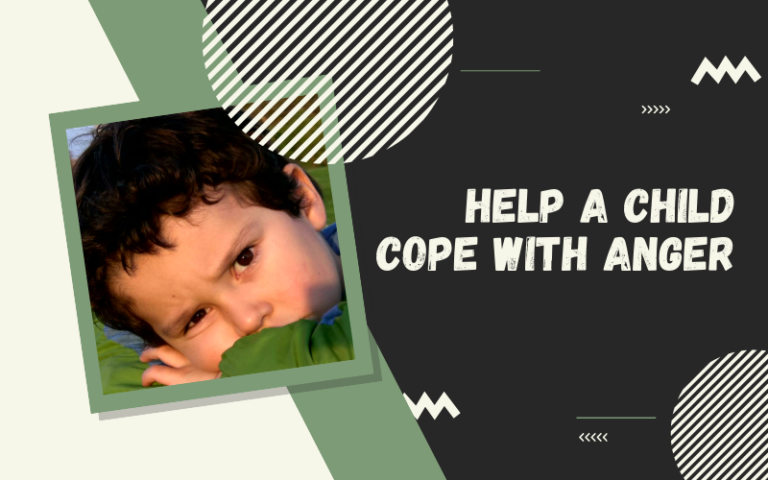Have you ever met an adult who can’t manage their anger? Maybe they scream, throw things or throw an all-out adult-sized tantrum. These adults never learned healthy coping techniques.
But in truth, anger is a very difficult emotion to manage. It’s especially difficult for kids who don’t have a lot of experience with emotions and social interactions.
When kids learn to manage their anger, they are better equipped to become well-adjusted adults.
Here are 6 ways for kids to combat anger
1. Acknowledge and empathize
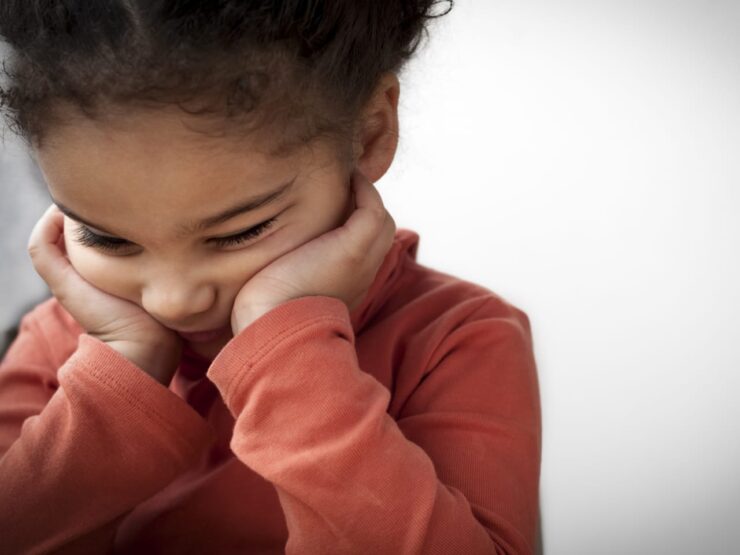
We tend to take it for granted that kids always know what they’re feeling. But here’s the thing. If you really think about it, you may not even always know what you’re feeling. We can’t expect more from our kids than we can handle ourselves. But we can teach them.
Fortunately, your child is likely feeling anger or frustration over something that is simple and obvious to you. For example, maybe you just talked to him about a need to share his toys with his little sister, and now he’s throwing his toys.
Take opportunities like this to teach your child about feelings. Start by identifying the feeling as anger. Explain what it feels like to be angry to help your child identify the emotion.
Once you’ve identified that your child is angry, empathize. Tell your child that you understand what it feels like to be angry and you feel angry sometimes too. It can help your child to know that these feelings are common and can be difficult for anyone to manage.
2. Talk about the consequences of poorly-managed anger
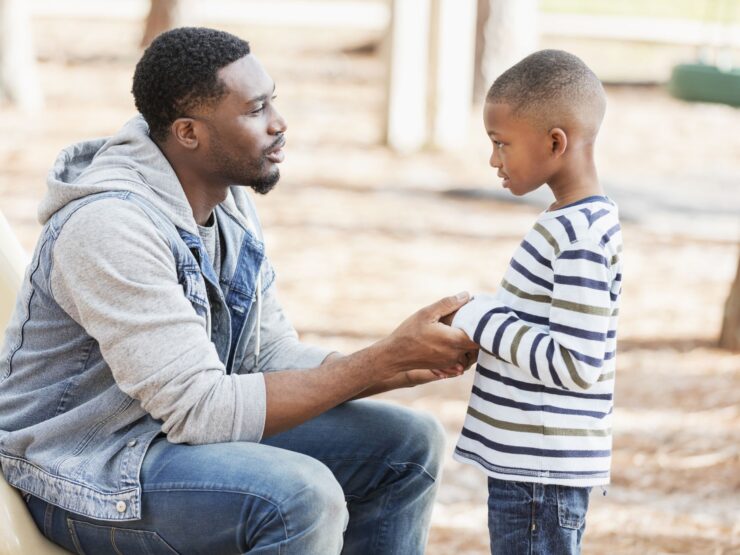
If you catch your child throwing blocks or hitting someone as a result of anger, use it as a teachable moment. Talk about all the reasons why those aren’t effective ways to manage anger. For example, what if the block broke a toy? And what if hitting hurt a friend or family member. They would then be sad. Or what if the person hit your child back?
Ask your child about the good things that came as a result of their behavior. Unfortunately, there aren’t any. The only potential upside would be if the action temporarily made your child feel better. But what if they could find a way to feel better without any negative consequences?
3. Give your child tools to handle anger
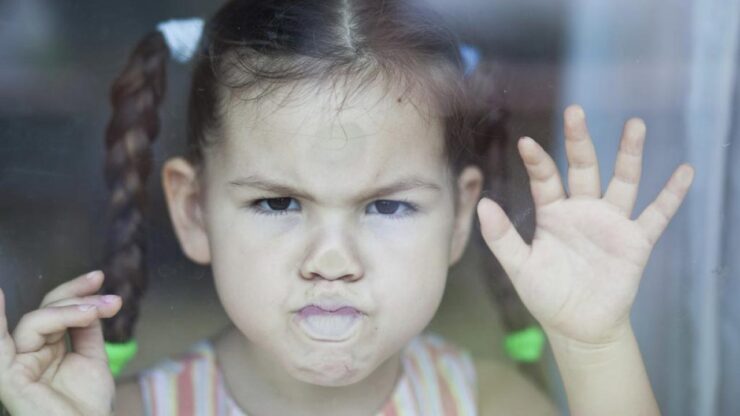
Children don’t inherently know how to handle anger. But if you’ve ever been angry, and you certainly have, you know that anger can make you feel out of control. Control is the best tool you can give your child to manage anger. Let her know that she’s got this. In her angriest moments, she can say, “I can handle this,” and get through the anger.
Counting and taking deep breaths can also help shift your child’s focus away from whatever is making her angry.
4. Rate their anger on a scale from 1 to 10
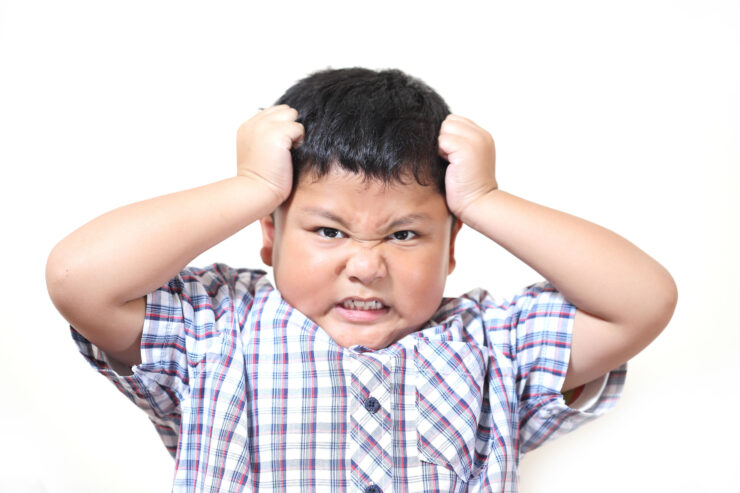
Give your child an anger rating on a scale from one to 10. Ten is as angry as can be and 1 is just a little perturbed.
As you practice coping mechanisms like breathing techniques, counting or walking away, ask your child to rate their own anger. Your goal is to illustrate how anger can subside over time.
As they see their rating going down, they can also see that the techniques are working.
After some practice with this technique, your child should be able to rate her own anger from the start. Rating their own anger helps your child become more self-aware.
Read also: Pros and Cons of Spanking your Child
5. Tell your child it’s okay to walk away

If your child is angry at someone else, oftentimes, walking away is the best way to diffuse the situation. If the choices are between walking away and lashing out, your child should always walk away.
This piece of advice shouldn’t be confused with walking away from problems. So make sure your child understands that the goal is to talk about their feelings when they’re calm again.
6. Give your child choices
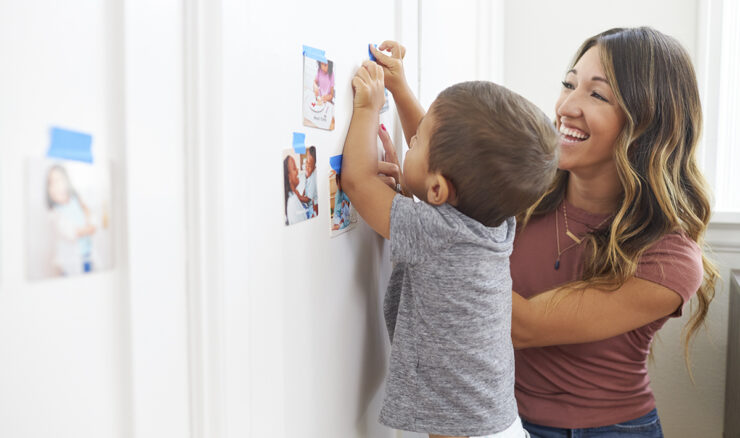
Once you’ve talked through all the potential ways your child could handle their anger, let them do what’s best for them. Breathing exercises are great for relaxation, but they may not work for everyone in the heat of the moment. Let your child try different things to find something that makes sense for them. What works for you is a good start, but it may not always be what works for your child.
Anger is such an important emotion to recognize and control, but it’s also one of the most difficult. If you find that you’ve gone through this list and your child still struggles with anger issues, find them help. A counselor can help them work through any underlying issues that might be behind their anger. The sooner you address these issues, the sooner they’ll start practicing healthy ways to cope with stressful situations.

